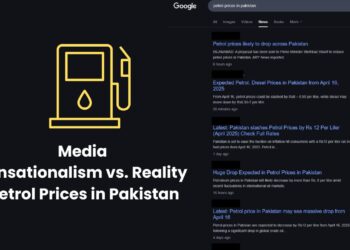By the time Pakistan’s present Parliament hangs its gloves, the economy will be in a tailspin. Barring untoward incidents that may cause a delay in the forthcoming election schedules, the presentation of the financial budget 2012-13 will be left to a new care taker government, in all probability an extension of the economic team already in place. Deprived of time and on-job expertise, it will be an uphill assignment to make major readjustments to an economy already melted and sunk.
The Debt Trap
The first challenge for the caretakers and the new government that comes to power after the elections will be the debt trap. Debt mismanagement by the present government during its tenure needs to be marked with five black stars. From 2008 to 2012, Pakistan’s total debt has jumped from Rs 6,037 billion to Rs. 12,002 Billion, a walloping 108% nearly doubling all that Pakistan borrowed in 61 years. This unprecedented borrowing was cleverly folded into the misleading term of Debt-GDP Ratio.
The government borrowed recklessly from external sources only to waste away into a completely mismanaged and corrupt system The benefits of this inflow could not be passed on to the people. External borrowing increased from Rs. 2,762 billion in the first 61 years to Rs. 4,364 billion in the past four years, an increase of 65%. As a departure from its Debt-GDP Ratio mantra adopted in the past, the government now appears to point realistically towards revenue generation capacity, forex reserves and export earnings. Given that Pakistani currency in the same period has shed 31 rupee against the dollar, this amount will continue to rise. As an option the government will borrow to pay loans. Another option would be to increase Pakistan’s exports and drastically cut out the import bills. In view of the recession, energy crisis, high cost of transportation and a big part of value added exports shifted to other countries, this is impossible unless the environments improve over successive years.
Government domestic borrowing during the same period has jumped by 133% from Rs. 3,275 Billion to Rs. 7,638 Billion. This has been at the cost of private sector that has not been permitted to grow besides other factors that discourage investments and entrepreneurship. This has led to high levels of inflation and devaluation of the rupee against the dollar. Pakistan’s debt trap is complete.
The fact that despite its charter, the governor of the central bank is a political appointee lacking the wherewithal to challenge the government’s policy impacts particularly on the banking sector that can now ensure a bigger say in the government’s decision making by becoming a major stake holder. Effects of these strains on the public money are visible in the interest rates and cash starvation for local industries.
Corruption
Where has this amount of Rs. 5965 Billion borrowed by the government till June 2012 gone? As an estimate, this government has borrowed Rs. 33,139 against every Pakistani. Overall, it places every citizen of the country under a debt of Rs. 72,000 likely to grow by June 2013. Devaluation compounds debt. The situation forced a British MP to comment on the viability of donating tax money to a country whose majority of parliamentarians do not pay taxes. Chairman NAB commented that Pakistan looses Rs.6-8 Billion on daily basis to corruption. He has also alluded to recovering trillions of rupees in his leaked letter to the Presidency. This amounts to Rs. 2190-2920 billions per annum, many times more that Pakistan’s combined debt in the past four years. Why is the chief whip of Pakistan’s anti corruption campaign constrained to tame this huge corruption cycle, particularly to redeem his record as a soldier of integrity and high honour and someone who always stood up for civil liberties?
It appears that everything is worked to a plan. All appointees of constitutional positions have been appointed belatedly and in fits and starts after filling the lower positions with political appointees and moles. So once these apparently aging and honest heads are appointed, the pressures so generated are too much for them to absorb. Controversies are then generated through disinformation and selective leakages to create an inaction that suits the powers that be. As a result, entire organizations with constitutional mandates have become contentious. National Accountability Bureau and Election Commission of Pakistan are two prominent case studies. Tainted and harmfully suggestive information leaked to media invariably tempts it into hot breaking news and telemarketing. As a result, monuments of inertia and engines of corruption manage to shift the attention of the people to a point away from the eye of the storm. Just like the Chairman CEC, the Chairman of NAB has also contended that faced by corruption within, they alone are unable to act as Lone Rangers for the aspirations of the people.
With the figures quoted above, where is the Federal Board of Revenue and Provincial Revenue Departments? The fact is that they have miserably failed to bring tax evasion and non documentation to the book. They neither have the desire nor the will to book these huge slippages because of rampant corruption at all tiers. Sales Tax rather than become a Value Addition for documentation has been reduced to a consumer unfriendly levy used to bloat tax collection figures. Why is a country that cedes Rs. 2190-2920 billions per annum to corruption be unable to collect enough revenue to stabilize its budgetary deficits and currency?
Energy
It has always been maintained in these columns that Pakistan’s energy crises are artificial and selectively generated to exercise a deflationary control over Pakistan’s economy. This is what happened when in 2007, fuel subsidies were removed and circular debts allowed to pile. Pakistan’s growing economy was halted in tracks and manipulated to recede.
As a tip of the iceberg, a few months back, NAB succeeded in blocking the scandalous agreement of $5 billion between PSO and Bakri Trading Company over import of furnace oil. This commodity is utilized by the entire industry and IPPS that generate electricity. Any swing in the prices of this commodity has a direct effect on the consumers due to the pricing mechanism of OGRA. Considering that this was just one deal that caught the eye of NAB, it can be assumed that many more skeletons can be brought out of the cupboard. Lt. General (Retired) Shahid Aziz’ disclosures on media and his book about a proverbial PSO investigation that broke the back of the camel is set to open a Pandora’s Box on the activities of the manipulated energy sector.
Pakistan State Oil is Pakistan’s largest energy company currently engaged in the import, marketing and distribution of products including fuels, petrochemicals and lubricants. It controls 78.2 % of the entire Pakistani black oil market and 54.3% share in the white oil market. Hence when PSO moves, the entire country shudders.
PSO has grown since 1974 through merger of Pakistan National Oil, Dawood Petroleum Limited and Premiere Oil Company to its present shape in 2004. As a government controlled autonomous organization, its role and efficiency is crucial to Pakistan’s energy sector eclipsing the two arms of the Sui Gas companies and Pakistan Petroleum Limited. Being the sole importer of petro chemicals, fuel and byproducts, its ability to negotiate pricing mechanisms at source and dissipate the same to its clients and consumers is therefore worth a scrutiny. Corruption can only work in concert with local refineries, petro chemical producers and OGRA. It is clear as daylight that the Ex Chairman NAB during his tenure had dared to look into these affairs to which Shaukat Aziz was very sensitive.
There are many mechanisms from imports to distribution including local products that can be brought into question regarding PSO. The entire cabal of cartels will need to be investigated. Outside experts and sources inside NAB believe that a complete investigation into this holiest of holy cow could result in misappropriations and recovery of over 30 Trillion Rupees. It is only then that an approximate slippage of Rs. 3,000 billion as opined by Chairman NAB begins to make sense. Hence the logic of multi dimensional pressures generated against Chairman NAB through diverse sources.
For any caretaker or interim government in Pakistan, debt trap, corruption and the energy sectors should be the main priorities. In the interim, the Supreme Court and Civil Society should put all its weight behind NAB to provide relief to an honest man trapped in alligator infested waters. Pakistan’s recovery could then be a matter of months.
Brigadier (Retired) Samson Simon Sharaf is a political economist and a television anchorperson.
Post Obtained from : http://pakpotpourri.wordpress.

















